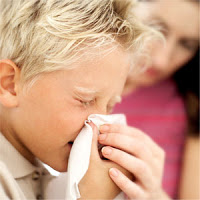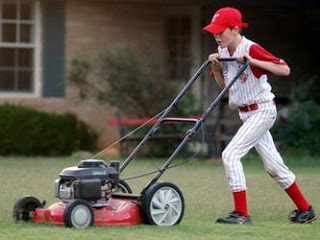This time of year in particular is prime time pollen production for trees and grass. Later in the summer and through the fall, the main cause of seasonal allergies in Chester County will be ragweed.
Allergies are physiological reactions caused when the immune system reacts to a specific foreign substance (allergen). The human body is designed to ward off detrimental “enemies,” such as viruses or bacteria, but in some instances it defends itself against relatively harmless substances, like pollen and dust. The immune system protects itself by releasing or producing histamines, cytokines and leukotrienes, thus creating unpleasant (or in extreme cases, life-threatening) reactions in the allergic person.
Reactions could be:• Nasal stuffiness, sneezing, nasal itching, nasal discharge, itching in the ears and roof of mouth (rhinitis)
• Red, itchy, watery eyes (allergic conjunctivitis)
• Red, itchy, dry skin (atopic dermatitis)
• Hives or itchy welts (urticaria)
• Itchy rash (contact dermatitis)
• Shortness of breath, coughing and wheezing (asthma)
 If you notice that your child has a runny and itchy nose (clear mucous), plus the sneezes and/or sniffles, and if his eyes are possibly watery and itchy too, your child probably has rhinitis, commonly known as hay fever. The main differences between allergies and a cold are: allergies don’t involve fevers, aches, pains; allergies start up as soon as the exposure begins; and often they occur at the same time each year.
If you notice that your child has a runny and itchy nose (clear mucous), plus the sneezes and/or sniffles, and if his eyes are possibly watery and itchy too, your child probably has rhinitis, commonly known as hay fever. The main differences between allergies and a cold are: allergies don’t involve fevers, aches, pains; allergies start up as soon as the exposure begins; and often they occur at the same time each year.
According to Dr. Gregory Lawton, a Chester County pediatrician and dad, “Most patients with seasonal allergies can get some relief from their symptoms with over-the-counter antihistamines, such as Loratidine or Cetirizine. These are once a day medications that tend to provide relief without making you drowsy. If antihistamines don’t provide sufficient relief, your physician has some additional options, depending on the severity of the symptoms and your child’s willingness to take nasal sprays or eyedrops.”
Ways to relieve your child’s allergy symptoms• Every night before bed, have your child shower/bathe and wash his/her hair.
• Avoid pollens, such as areas where the grass is being mowed, days that are windy, and allergens in the home.
• Wash their faces and eyes with water to clear away lingering pollen. Allow them to rest with a cold wet cloth on their eyes for 10 minutes to get some relief.
• Keep house windows closed at night and car windows closed when traveling.
• Use air conditioning to clean, cool and dry the air.
• Minimize outdoor activities between 5 and 10 am when pollen is most prevalent.
• Do not hang the bedding of a person with allergies outside to dry.
• Stay indoors when it is windy or if the forecast calls for high pollen counts.
• When vacationing, remember that pollen is not as prevalent near the ocean.
• If your child is prescribed allergy medicine, don’t forget to give him/her the appropriate dosage.
If your child does not feel relief when using an antihistamine and avoiding common allergens, or if they seem more dramatically affected than just runny nose, itchy eyes or sneezing, please contact your child’s pediatrician or a pediatric allergist. These specialists can help identify the specific allergies through a skin test and/or a blood test, to help provide a more individualized plan of care. Immunotherapy (allergy shots) is a common relief option for children with hay fever and/or asthma, and can provide a longer term reprieve.
 Dr. Lawton adds, “If your child has an allergic reaction to anything that causes him/her to have trouble breathing, swallowing, or swelling around the mouth, tongue or throat, do not hesitate to call 9-1-1 immediately.”
Dr. Lawton adds, “If your child has an allergic reaction to anything that causes him/her to have trouble breathing, swallowing, or swelling around the mouth, tongue or throat, do not hesitate to call 9-1-1 immediately.”
Quite simply, the name of the allergy game is R-E-L-I-E-F. Parents want their kids to enjoy the great outdoors or to be able to help with the yard work, without the annoyance of uncontrolled sneezing, uncomfortable itchy eyes, or an unending runny nose.
Yes, relief is the goal, so that spring, summer and fall can be enjoyed once and for all.
—
Chester County resident L. Gregory Lawton, MD, FAAP, is a board-certified pediatrician with CHOP Care Network – West Chester. He has been treating children 12 years. He and his own children relieve their springtime allergies with over-the-counter antihistamines.—
ChesterCountyHospital.org
Making Lives Better Every Day.

Leave a comment